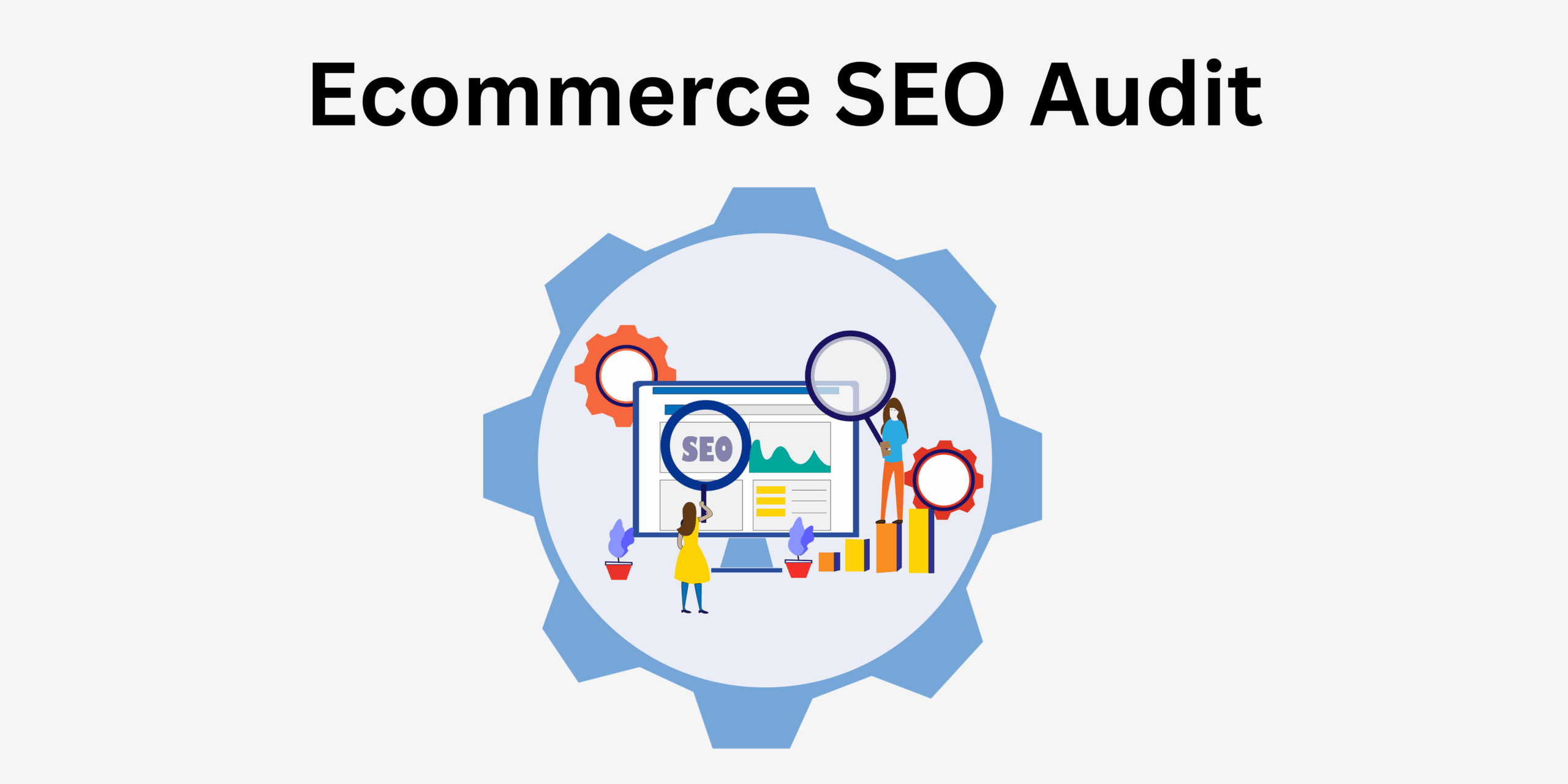Discover how to perform a thorough ecommerce SEO audit to optimize your site structure, content, and performance. Ideal for Shopify, Magento, and all e-commerce platforms.
Introduction
In the fast-evolving digital marketplace, an ecommerce SEO audit is no longer a luxury—it’s a necessity. Whether you’re operating a Shopify store, a Magento website, or a custom-built ecommerce platform, conducting a regular ecommerce site audit ensures your store is optimized for both search engines and your customers.
As competition grows fiercer in the online retail space, brands must take SEO seriously to remain visible, competitive, and profitable. This guide outlines everything you need to know about a comprehensive e-commerce SEO audit, combining best practices, tools, techniques, and actionable insights that enhance organic visibility, drive traffic, and improve conversions.
Understanding the Importance of Ecommerce SEO Audits
An e-commerce SEO audit assesses the search engine optimization health of your website. Unlike general websites, e-commerce stores deal with thousands of product and category pages, making SEO even more complex.
From ensuring on-page SEO for ecommerce is in place to eliminating crawl issues, the goal of the audit is to identify weak points and opportunities for growth. A good e-commerce audit not only uncovers technical errors but also helps refine content strategies, keyword alignment, user experience, and backlink quality. For example, businesses targeting competitive local keywords such as “best hospital in Hyderabad” can use an in-depth audit to strengthen their visibility and outperform rivals in search results.
A properly done SEO audit for e-commerce sites gives you the insights needed to keep up with Google’s evolving algorithms and avoid penalties that can hurt visibility.
More importantly, it ensures your online store provides the best possible experience for both users and search engines. Whether you’re looking at a Magento SEO audit, Shopify SEO audit, or a large e-commerce SEO site audit, the underlying principles remain the same—optimization, accuracy, and alignment with your business goals.
Key Components of an Effective Ecommerce SEO Audit
A robust ecommerce website SEO audit covers multiple pillars: technical SEO, on-page elements, off-page SEO, and content. Starting with site architecture, your ecommerce website must allow for smooth crawling and indexing.
This includes having a logical URL structure, breadcrumb navigation, and a sitemap.xml that search engines can easily follow.
Next, there’s on-page SEO for e-commerce: optimizing titles, meta descriptions, H1 tags, product descriptions, and internal linking.
A proper ecommerce content audit assesses how well your content aligns with target keywords, user intent, and purchase behavior. Duplicate content—common in ecommerce—is another critical issue that audits help fix.
Another crucial element is performance and speed. A slow-loading store will not only frustrate users but also negatively impact rankings. Mobile-friendliness, HTTPS implementation, and structured data (schema markup) also fall under this umbrella.
Lastly, backlinks and domain authority are assessed in a full ecommerce SEO site audit. Evaluating external and internal links ensures that your authority and trustworthiness with search engines remain intact.
Tools and Techniques for Conducting a Thorough Ecommerce SEO Audit
Various ecommerce SEO software tools help streamline the audit process. Ahrefs ecommerce SEO, for example, is widely used for backlink analysis, competitor audits, and content gap identification. Similarly, tools like Screaming Frog, SEMrush, Google Search Console, and Google Analytics offer essential insights into site performance and crawlability.
In a Shopify website audit, apps like Plug in SEO or SEOptimer can quickly flag technical and content issues.
For a Magento site audit, built-in diagnostic tools and extensions offer reporting features to diagnose SEO challenges unique to the platform.
Advanced audits may include using XPath on URLs to extract and analyze structured patterns from large ecommerce databases. AI-driven SEO audit tools can also surface patterns and suggest changes that might otherwise go unnoticed. Whether you’re doing an audit of SEO for Shopify, Magento, or WooCommerce, the right tools are critical for scaling the process efficiently.
Analyzing Website Structure and User Experience for SEO Optimization
A seamless and intuitive site structure is the foundation of SEO. During an ecommerce site audit, you’ll want to look at your website’s hierarchy. Proper categorization helps both search engines and users navigate the site. Deeply nested pages can become problematic; ideally, no important page should be more than three clicks from the homepage.
URL structure also matters—clean, keyword-rich URLs rank better and are easier to share. A full e-commerce site audit also examines internal linking strategies. Are you passing link equity effectively? Are orphan pages (pages with no internal links pointing to them) hurting your crawl budget?
The user experience (UX) is just as important to SEO as structure. Factors like page speed, mobile responsiveness, and intuitive navigation reduce bounce rates and increase engagement. Google’s Core Web Vitals—metrics around visual stability, input delay, and loading time—are now ranking factors. By analyzing these areas during your ecommerce SEO audit, you can make technical improvements that directly impact visibility.
Evaluating Keyword Strategy and Content Performance in Ecommerce
No ecommerce SEO audit checklist is complete without evaluating the keyword strategy. Are you targeting high-volume, low-competition keywords that convert? Are your product and category pages optimized for both short-tail and long-tail keywords?
An ecommerce content audit reviews the performance of existing pages—identifying those that underperform and those that bring in high traffic. Pages with duplicate content, thin content, or outdated information must be optimized or removed. For instance, product pages often share similar descriptions. Adding unique value to each one can enhance search rankings significantly.
Category pages often present the best ranking opportunity, given their relevance to broader keyword clusters. An ecommerce SEO guide will typically recommend creating rich, SEO-optimized content for these pages—such as FAQs, buying guides, or brand stories—to improve visibility and engagement.
Best Practices for Implementing SEO Recommendations from the Audit
Once the audit is complete, implementation begins. Start by prioritizing fixes based on impact. Critical issues like broken links, missing tags, and duplicate content should be addressed first. Then, focus on enhancing user experience with better page load speeds, improved mobile design, and clearer calls to action.
Integrate findings into your long-term SEO strategy. For example, if your audit shows weak performance on product descriptions, build a process to write unique, keyword-rich copy for each product in the future. Regular content updates and monitoring keyword trends will also keep your ecommerce SEO sharp.
Many brands also use an ecommerce website audit checklist to schedule regular health checks—quarterly or biannually. This ensures new SEO issues are identified and resolved before they snowball into bigger problems.
For large-scale operations, automation through AI tools, Ahrefs SEO checklist features, or proprietary ecommerce SEO audit services can help manage bulk updates. Whether it’s a Magento SEO checklist, Shopify-specific SEO rules, or general best practices, following a structured roadmap ensures sustainable results.
Conclusion
A comprehensive ecommerce SEO audit is essential to stay competitive in a crowded digital landscape. From evaluating your ecommerce SEO checklist to leveraging tools like Ahrefs and implementing changes that align with user behavior, a full audit reveals both problems and possibilities.
Whether you’re just starting with a Shopify store or managing a massive Magento site, ongoing SEO audits lead to more traffic, higher conversions, and better user satisfaction. Long-term success and sustained rankings are ultimately guaranteed when audits are incorporated into your e-commerce business strategy.
By regularly following this ecommerce SEO audit checklist, utilizing advanced tools, and implementing best practices, you set your store on a path to organic growth. Don’t just aim for visibility—strive for dominance in your niche with a proactive and data-driven approach to SEO.
FAQS
1. What is an ecommerce SEO audit?
The phrase “ecommerce SEO audit” describes a thorough examination of the SEO of your online store. It identifies technical issues, evaluates content and keyword performance, and ensures your site is optimized for visibility and user experience.
2. Why is an ecommerce SEO audit important?
A. It helps improve your site’s rankings in search engines, increases organic traffic, identifies and fixes SEO errors, and enhances the overall shopping experience for your customers.
3. How often should I perform an ecommerce SEO audit?
A. Ideally, you should conduct a full audit every 3 to 6 months or after major changes to your website, such as a redesign, migration, or the launch of new products.
4. What are the key components of an ecommerce SEO audit?
A. Key components include technical SEO, on-page SEO (titles, descriptions, product content), site speed, mobile-friendliness, URL structure, keyword analysis, backlink profile, and content performance.
5. Can AI tools help with ecommerce SEO audits?
A. Yes, AI-powered SEO tools can analyze data faster, identify patterns, and provide actionable insights for large ecommerce sites, making audits more efficient and data-driven.



0 Comments